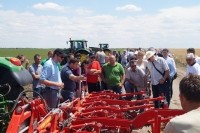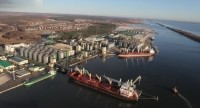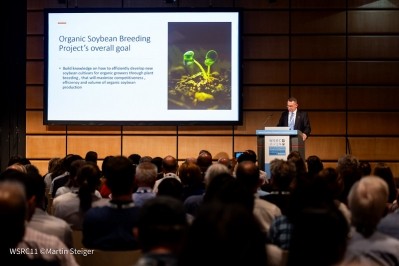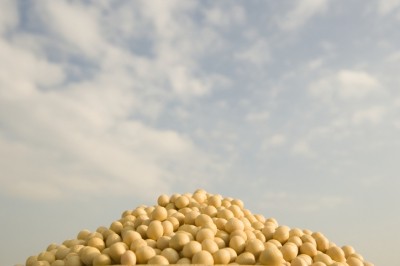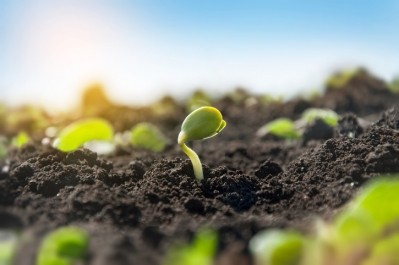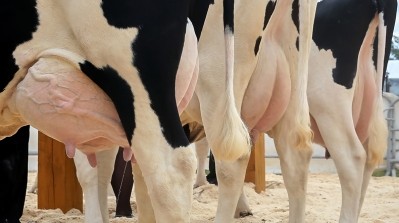Use of Europe Soya certified SPC source in feed could drastically boost the sustainability profile of Norwegian salmon production
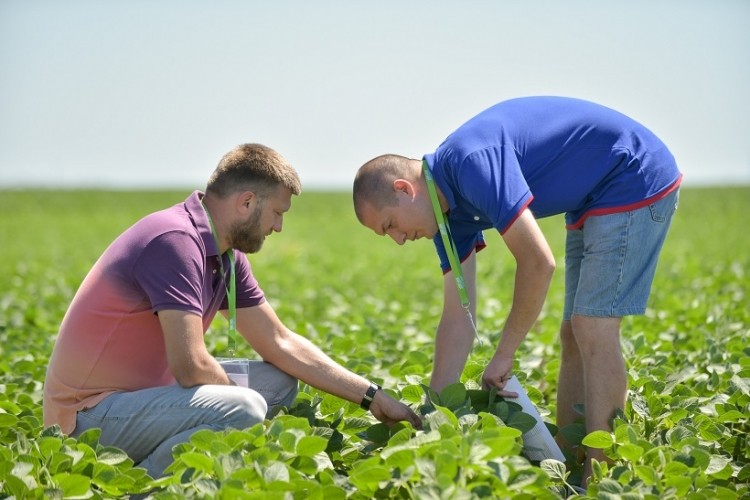
The research was commissioned by Donau Soja, a Vienna headquartered organization that promotes a non-GM, sustainable and European protein supply. The study was part of a wider project aimed at developing a European SPC supply for Norwegian salmon production.
“We started the initiative about three to four years ago. The objective was to be able to supply the Norwegian salmon feed industry with sustainable and certified soy products. The demand is huge. We have invested in the sourcing, the development of the value chain, working with farmers [in the Balkans] and the Sodrugestvo Group on the processing side. Over the next year, 50% of the demand for SPC by Norwegian salmon feed producers could be covered by Europe Soya (ES) certified SPC. It is a huge step forward for local sourcing of feed proteins,” Marija Kalentic, executive director and regional director - Central and Eastern Europe – Donau Soja, told us.
The organization has been raising awareness of this ES certified SPC supply in the past months, actively engaging with a range of stakeholders from retailers to feed companies as well as initiating the research comparing CO2 emissions from using ES certified SPC versus the Brazilian equivalent that the Norwegian salmon industry is using to a large extent, she said.
Over the next three months, the plan is to engage additional stakeholders involved in the aquaculture value chain in Norway. The organization will also look to raise awareness among the general public in that market about how the use of ES certified SPC could improve the sustainability profile of salmon farming there; it will execute a media campaign in that country to realize that, said Kalentic.
FiBL carbon footprint study - the insights gleaned
The FiBL study analyzed ES certified SPC produced by Donau Soja member, Russia’s Sodrugestvo Group, and it took into account the cradle to port of soybean production at the farm level to the final product exiting the factory gate in Kaliningrad.
The results of that research confirmed that the carbon-footprint of 1kg of Europe Soya certified SPC is 1.6 kg CO2-eq. This is 4.2 times less than the Brazilian SPC default (6.7 CO2-eq/kg SPC), said Kalentic.
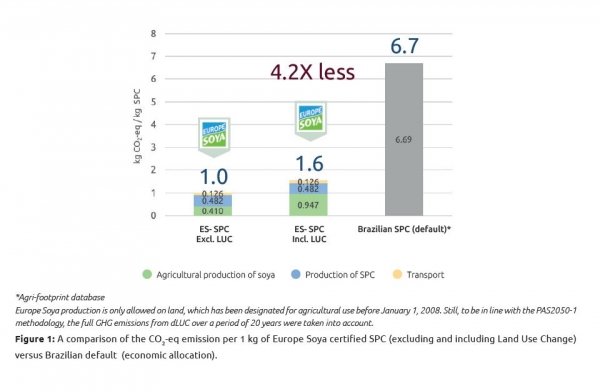
The study showed land use change is the biggest lever to cut down on CO2-eq emissions. Additionally, the results demonstrated reduced transport emissions in Europe Soya certified scenario compared to Brazilian SPC, she said.
If the Norwegian salmon feed industry changes to ES certified SPC , Norway would be able to cut 1.5m tons CO2-eq which is equivalent to almost 3% of national Norwegian gross greenhouse gas emissions, said Kalentic. “For the average Norwegian salmon feed, this means that the feed mix with Europe Soya certified SPC has a 41 % lower CO2-eq emissions than the feed with Brazilian default SPC.”
Brazil sourced SPC
Soy, in the form of soy protein concentrate (SPC) from Brazil, is an important source of protein and a key ingredient in the feed consumed by Norwegian farmed salmon. In Norway, food and feed manufacturers are required to use soy that has not been genetically modified (non-GMO), so they are highly dependent on soy cultivation in Brazil, that country being the biggest supplier of non-GMO soy globally.
Leading fish feed manufacturer, BioMar, for example, buys between 20,000 and 60,000 metric tons combined of non-GMO soy annually from Brazil based SPC suppliers, Caramuru, Selecta and Imcopa.
Those suppliers came under scrutiny in 2018 when a report involving a Norwegian NGO called them to task over what were described as questionable practices. However, a BioMar investigation that followed found no intent or negligence on the part of its Brazilian suppliers in terms of environmental or social legislation violations.
An industry roundtable has been set up since to ensure greater transparency in the SPC value chain in Brazil.
ES certified SPC offers an alternative to Brazil sourced SPC, says Donau Soja.
Expanded capacity in Russian Europe Soya certified SPC factory
Demand for SPC in Norwegian salmon feed is significant. According to a report from IDH’s European Soy Monitor, Norway imported of 281,600 tons of soy protein concentrate (SPC) for use in aquaculture in 2017.
The Sodrugestvo Group’s factory in Kaliningrad in Russia has produced SPC since 2015, targeting both feed and food sectors, Carsten Lentz Storm, area manager at the Sodrugestvo Group, told us.
The facility became Europa Soya certified, following the group’s engagement with Donau Soja, and both parties collaborating on the establishment of a Europa Soya certified soybean supply chain in the Balkans, namely farmers in Serbia, Croatia and Romania, he said.
“Our product SodruSoy/EUROPE SOY has been on the market since autumn 2018,” said Lentz Storm.
To date, the SPC volumes at the Sodrugestvo factory have been around 60,000 tons per year, he said. But the group is currently in the process of ramping up production of that SPC product.
A second production line is currently under construction in Kaliningrad, and will be operational soon, said the area manager. “When this unit is up and running, total capacity of Europe Soya credited SPC will be 150,000–160,000 tons on an annual basis.”
While there are a couple of other SPC processors in Europe using European origin soybeans, such as Sojaprotein, there is only marginal use of such sources in Norway. “Sodrugestvo is the biggest [in terms of capacity],” said Kalentic.
Are feed manufacturers getting behind the product?
Skretting Norway has been supplementing its salmon feed with Europe Soya certified SPC since the product was launched.
“Skretting Norway committed to purchase ES certified SPC when presented with the plans of the Sodrugestvo Group. For Skretting and our customers, a wider selection of raw materials to choose from is very important in reducing volatility and risk in our supply chain,” a representative for the feed producer told us.
The Europe Soy certified SPC has approximately the same nutritional levels and quality as ProTerra certified Brazilian SPC, she said.
Morten Holdorff Møjbæk, global sourcing director, BioMar, said the company has also been using ES certified SPC from the beginning and it finds it comparable to certified Brazilian SPC.
"For BioMar, having a diverse supply of raw materials selection is essential in ensuring a stable supply of aquaculture feeds for our customers and, at this point, there is a deficit of European SPC in the marketplace," he said.
Cargill, though, has neither been testing or using this Europe Soya credited SPC in its feed formulations.
“We have, however, used SPC made from European beans and expect the quality to be the same.
“In general, increased availability of European soybeans is positive. It increases our options to source sustainable feed raw materials and provides increased competition and better availability of soybeans for producers. At the same time, our industry gets more choices, both within purchasing and logistics, and also in giving salmon farmers options when choosing their market approach,” said a spokesperson.
